15 Bedtime Rituals That Enhance Fat Burning and Aid Weight Loss
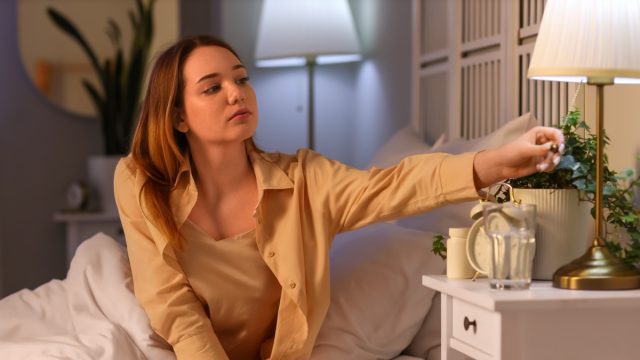
Sleep is incredibly important for weight loss and fat burning. Good quality sleep—and the right amount of it—is a powerful weapon in your weight loss arsenal. On the other hand, poor quality, disrupted sleep can seriously undermine your health and fitness efforts and slow down fat burning. Luckily, there are certain things you can do at bedtime to encourage sleep and, therefore, encourage weight loss. Here are 15 rituals that can help boost your fitness regimen.
10 Minutes of Stretching

Jumping straight into bed isn't enough to relax, experts say. "After being so active, you need to transition before going to bed," Anna Ribaudo, PT, DPT, OCS, Capp-OB, tells HSS. Ribaudo recommends 10 minutes of gentle stretching before bed. "Your day is like your marathon. It doesn't matter whether you're walking, standing or sitting at a desk, your muscles are being tested. Stretching is a way to relax them so you can rest more comfortably."
Journaling
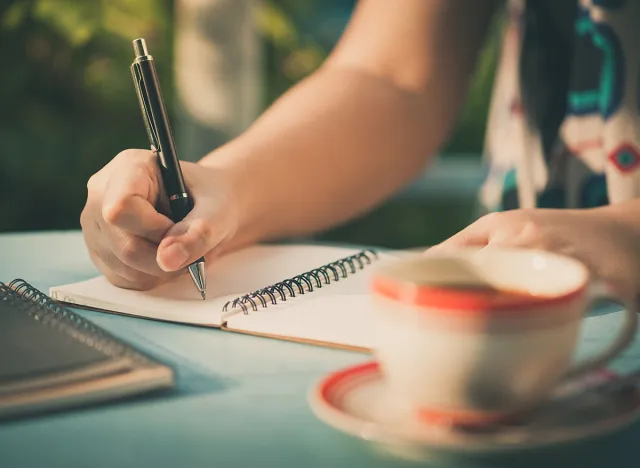
Writing before bed is a great way to calm your mind down. "It may not always be an easy habit to get into, but journaling before bed can really make a difference if you're struggling to get a good night's sleep," Michael J. Breus, PhD, tells Psychology Today. "If you're preoccupied with nighttime worries, give it a try. Good sleep and renewed peace of mind could be just a few minutes away."
Meditation
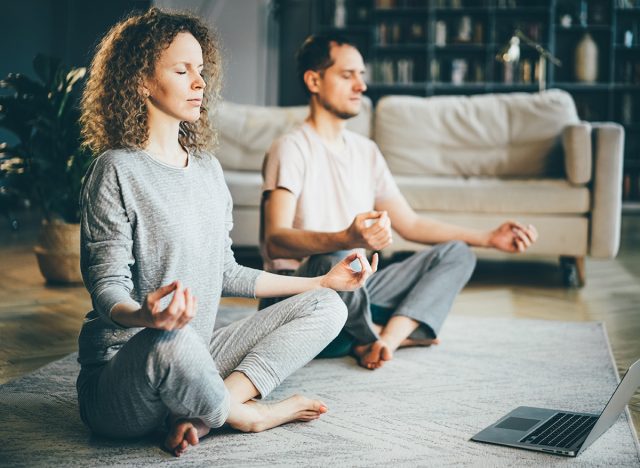
Meditation is a wonderful way to get your mind and body ready for sleep. "I think we often start replaying the day in our mind and worrying about what we could have done better or what we didn't do right," functional medicine specialist Melissa Young, MD, tells the Cleveland Clinic. "These sleep meditations can be very helpful in releasing some of those thoughts."
RELATED: 19 Things to Do if You Want to Drop a Few Pounds Really Quick
Reading a Book
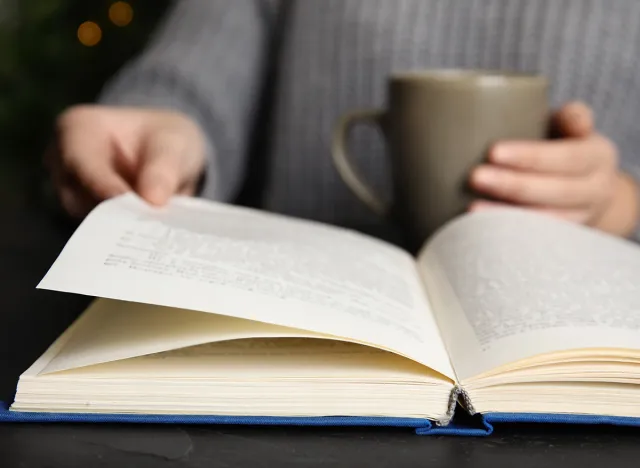
Reading at bedtime isn't just for children—studies show it improves sleep for adults, too. "Reading before bed is one of my favorite ways to relax as part of a bedtime routine," Sleep Medicine Physician Dustin Cotliar, MD, tells the Sleep Foundation. "I recommend it to my patients who have trouble sleeping."
Calming Music
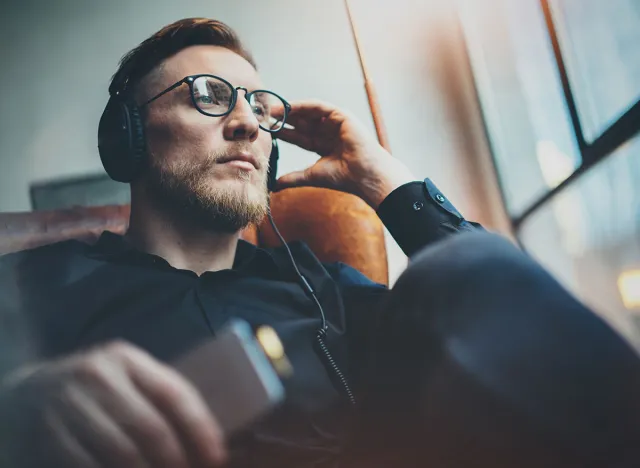
Soft, gentle music can positively impact sleep quality. "Relaxing music triggers changes to the body that in many ways mimic a sleep state," Dr. Breus tells Psychology Today. "A slower heart rate, slower breathing, and lower blood pressure are all physiological changes that make possible the process of falling asleep and staying asleep."
Bedtime Tea

Herbal tea, such as chamomile, can help you relax at bedtime. "Chamomile tea is more than just a calming beverage to consume before bedtime," says Harvard Health. "Chamomile is an herb taken from the flowers of the Asteraceae plant family. People around the world have been using it as a natural remedy for several health conditions since ancient times."
Use Blackout Curtains
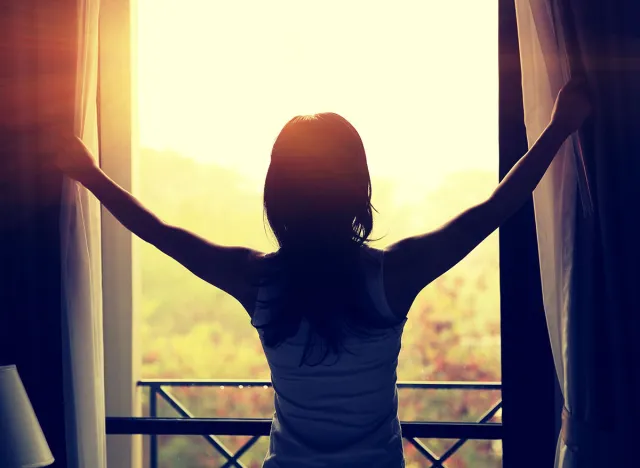
Too much light can interfere with sleep. "We are surrounded by so much external light, even outside of our phone screens," says Dr. Young. "It can make a big difference in helping you fall asleep and stay asleep."
Take a Bath

The 'warm bath effect' is shown to increase deep sleep by 10-15 percent. "When you've had a warm bath or shower, all of the blood races to the surface of your skin. As a result… your core body temperature actually plummets," says Matthew Walker, PhD.
RELATED: 15 Ozempic Alternatives for Effective Weight Loss
No Screens In Bed
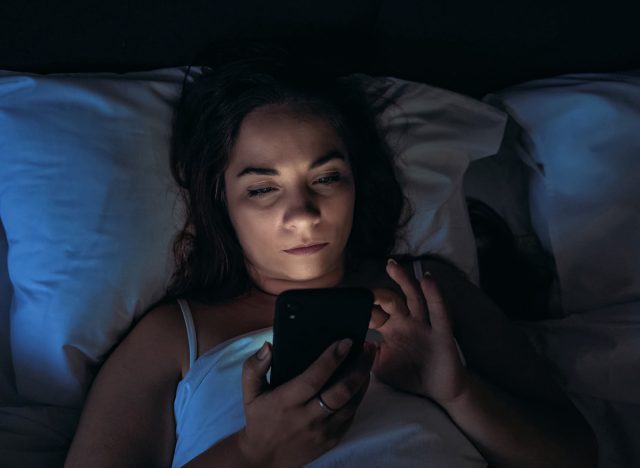
"The light from our screens can delay our transition to sleep, even if we are engaged in some soothing activity online," Joanna A. Cooper, MD, tells Sutter Health. "But it's more likely that our evening texting, television shows or video games are stimulating in themselves, keeping the brain busy and wound up, and even causing adrenaline rushes instead of calm."
Sound Machine
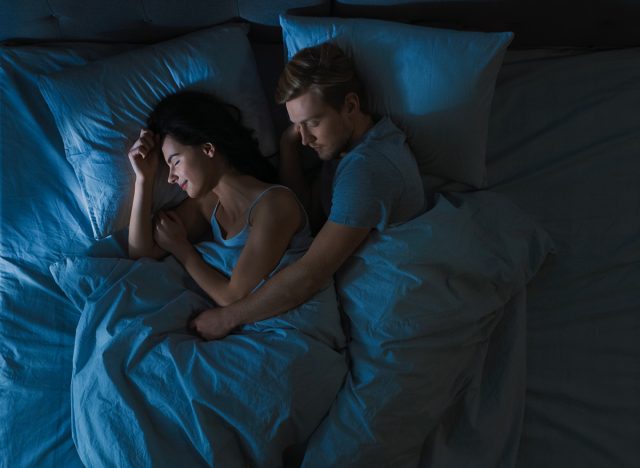
Using a sound machine at bedtime may encourage deeper sleep. "Pink noise has a lower tone and sounds lower pitched than white," Ruckshanda Majid, MD, tells Memorial Hermann Health System. "It's more reminiscent of light rain, waterfalls or rivers. The deepest pitch is brown noise, like a heavy rainfall."
Be Consistent
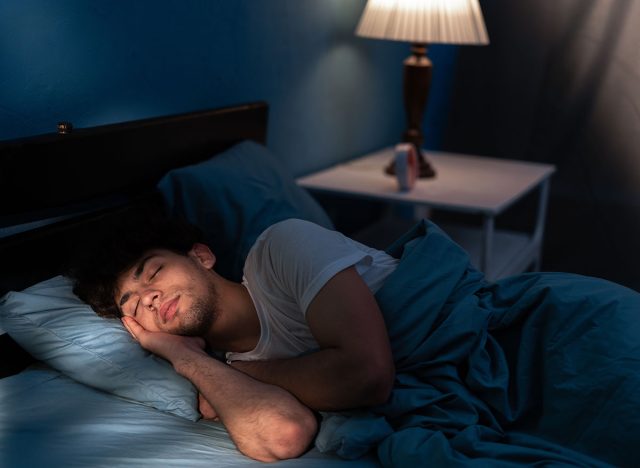
Consistency is important for sleep quality. "Go to bed at the same time each night and get up at the same time each morning, including on the weekends," says the CDC. "Make sure your bedroom is quiet, dark, relaxing, and at a comfortable temperature."
Limit Alcohol

Alcohol can negatively impact sleep quality. "There's some evidence that alcohol actually disrupts the release of melatonin in your brain," Aristidis Latridis, MD, tells Piedmont Health. "Melatonin is the hormone that your brain releases when it wants to go to sleep. As a result, people who drink alcohol tend to have very broken sleep and don't sleep well. They also wake up in the morning not feeling as rested as they should."
Turn Down the Lights
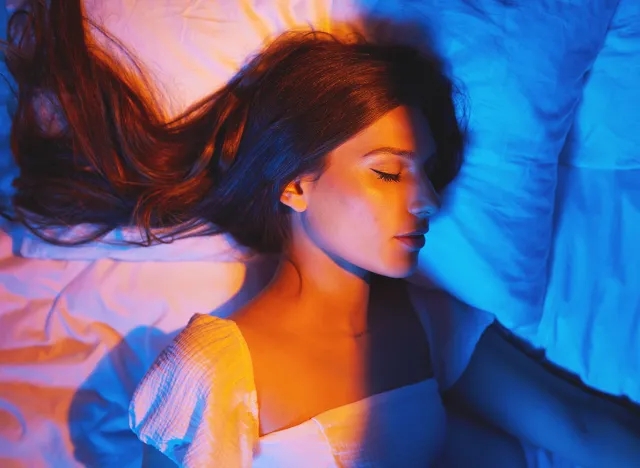
Avoid bright lights before bedtime. "LED lights, while being more energy efficient, tend to produce more blue light," Deirdre Conroy, PhD, tells Michigan Medicine. "Using dim or red lights before bedtime may help you sleep better.
Keep It Cool
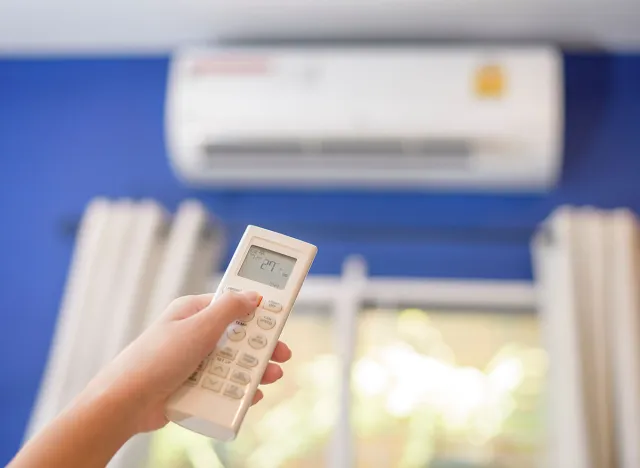
Keep the temperature down to promote sleep. "We know that in order to fall asleep and stay asleep, we need our core body temperature to drop by one or two degrees," Dr Maja Schaedel, co-founder of The Good Sleep Clinic, tells The Standard. "Lowering the room temperature from 24C (75F) to 18C (64F) has a significant impact on sleep quality, making it much better during cooler climates."
RELATED: I Lost 160 Pounds by Making These 10 Fast Food Swaps
Avoid Caffeine

Caffeine can disrupt your sleep quality, so be mindful of having it close to bedtime. "It can take two to 10 hours for just half of caffeine's effects to wear off," Anthony DiMarino, RD, LD, tells the Cleveland Clinic. "This 'half-life,' as it's known, varies from person to person. Someone who metabolizes caffeine slowly should probably avoid evening caffeine if they want a good night's rest."
💪🔥Body Booster: Sleep impacts every aspect of your health, so don't neglect it!




